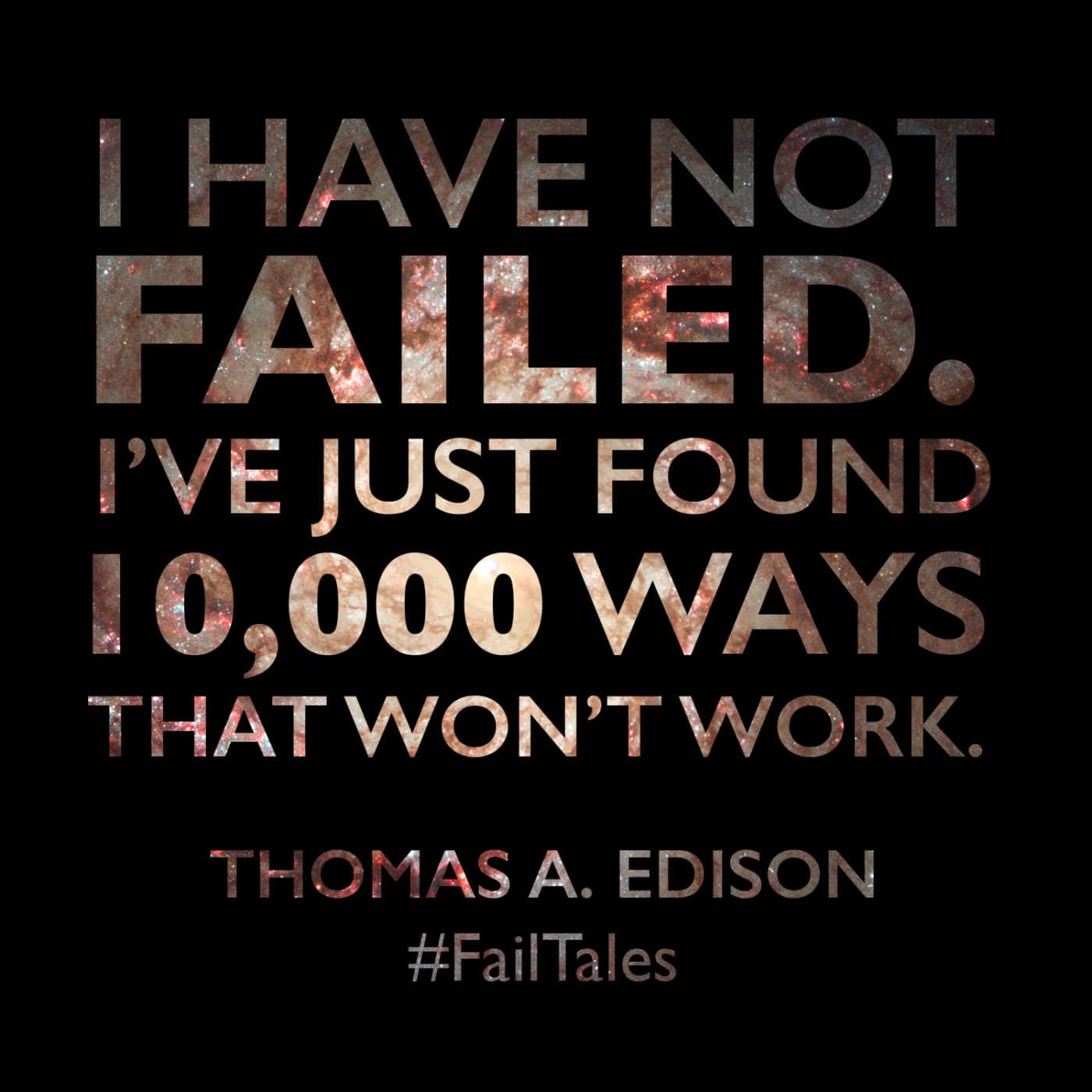Subscribe to our newsletter
Why We Should Embrace Failure #FailTales

Some people still claim that the third Monday of the New Year is the most miserable day of the year. While the concept of Blue Monday was initially a marketing stunt proven to be pseudoscientific rubbish, the man behind the endorsement of the idea, Dr Cliff Arnall, had intended to make January less miserable by inspiring people to take opportunities they would not otherwise take1.
As humans we are conditioned to frame failure negatively. As a research community, however, our greatest accomplishments would never have come about had it not been for failures along the way. Whether that success has come from an accidental discovery through an experiment that had failed, or whether it was achieved through the more traditional route of ‘if at first you don’t succeed, repeat it three more times before tweaking the method’, failure is an integral part of the iterative process of improvement through trial and error.
“Failure is simply the opportunity to begin again, this time more intelligently.” Henry Ford
Why then is it that as a community we still struggle to own these failures in our work? Much of this attitude can come down to society as a whole. In this social media world, it seems that everyone and their cat are living successful and fulfilling lives. It is easy to forget that this world is not representative of the sine waves of emotion and effort that have led to that person (or, indeed, cat) living their best life. All we see are the edited highlights.
Furthermore, as a profession we do not value these so-called failures encountered on the path to success. Journals of Negative Results are a reasonably new concept. Generally speaking, researchers only publish successful results. What if this leads to several research groups around the world striving to make a certain catalyst and all following a similar or same method, only to find that after months of lab time and thousands of pounds of research spending, they are each unable to produce it? Surely if the first group to try this method had shared those results, the entire scientific endeavour benefits from that knowledge?
Failure is intrinsically linked with negativity, despite it being a normal and expected stage of the research cycle. This year, we want to embrace failure. We want to see a more honest and realistic research presence on social media. We want to hear your #FailTales, and we want to know whether success came from those failures. We want to shine a light on the research that embraces failure in a healthy way, such as coding and programming, and learn from it. We want to share ways to make ourselves more resilient to failure, to help us focus on the learning outcomes and build on that failure positively. And we want to do this with you, the research community.
As Albus Dumbledore said, “happiness can be found even in the darkest of times, if one only remembers to turn on the light.” How can we identify success without failure to compare it to? How do we even define success? Personally and professionally, each of us can define this in very different ways, but does that mean we have our failures in common or are these also very different? We want the research community to be the happiest, strongest and most productive it can be. In 2019, we want to help you turn on that light and embrace failure. We want you to share your stories and become part of the change you want to see in the research culture that tells you that failure is bad.
From now until 13th October 2019, the International Day for Failure, we will be focusing on four strands of failure:
- Failure in Science
- Failure in Tech
- Failure in Innovation
- Failure in Business and Organisational Culture
Alongside this, throughout the year, we would like to hear from you. Share your #FailTales with us on Twitter, Facebook and Instagram and embrace failure in 2019 to make you and your profession stronger and better.
1: https://www.independent.co.uk/news/uk/home-news/blue-monday-apology-depressing-january-misey-money-disposable-income-psychology-dr-cliff-arnall-a8143246.html
